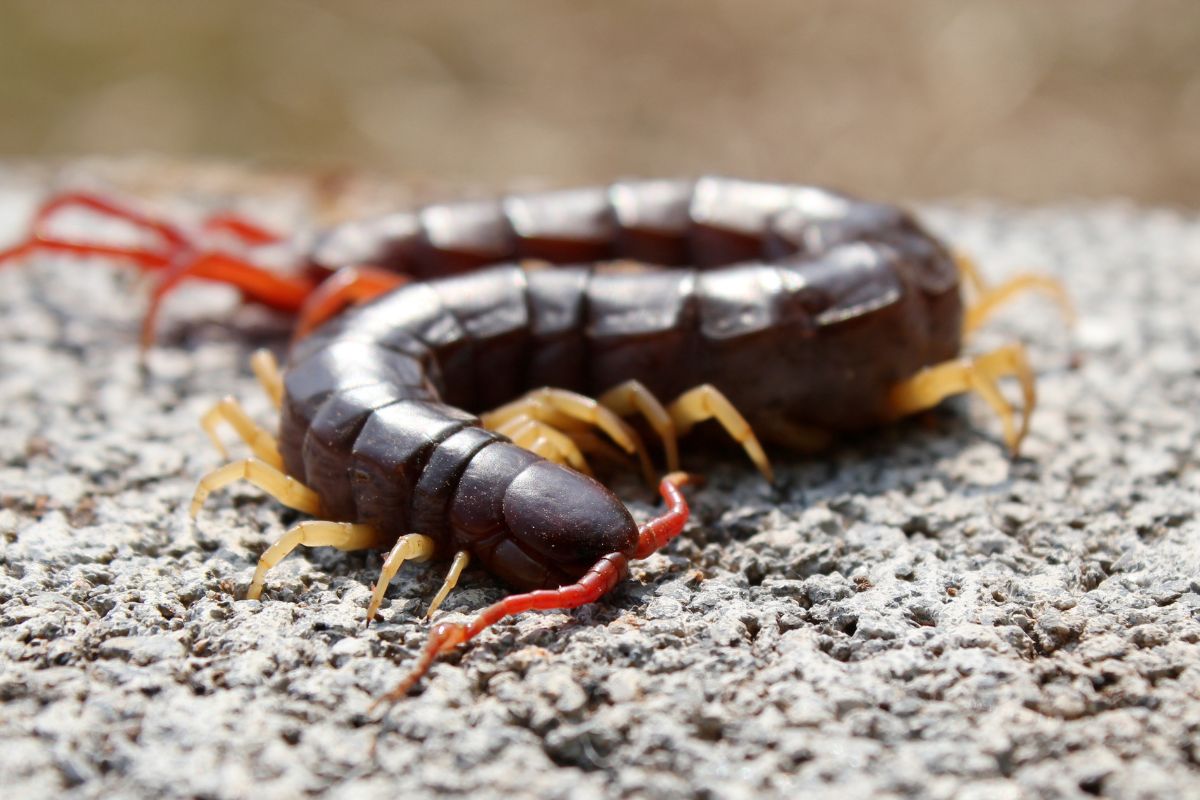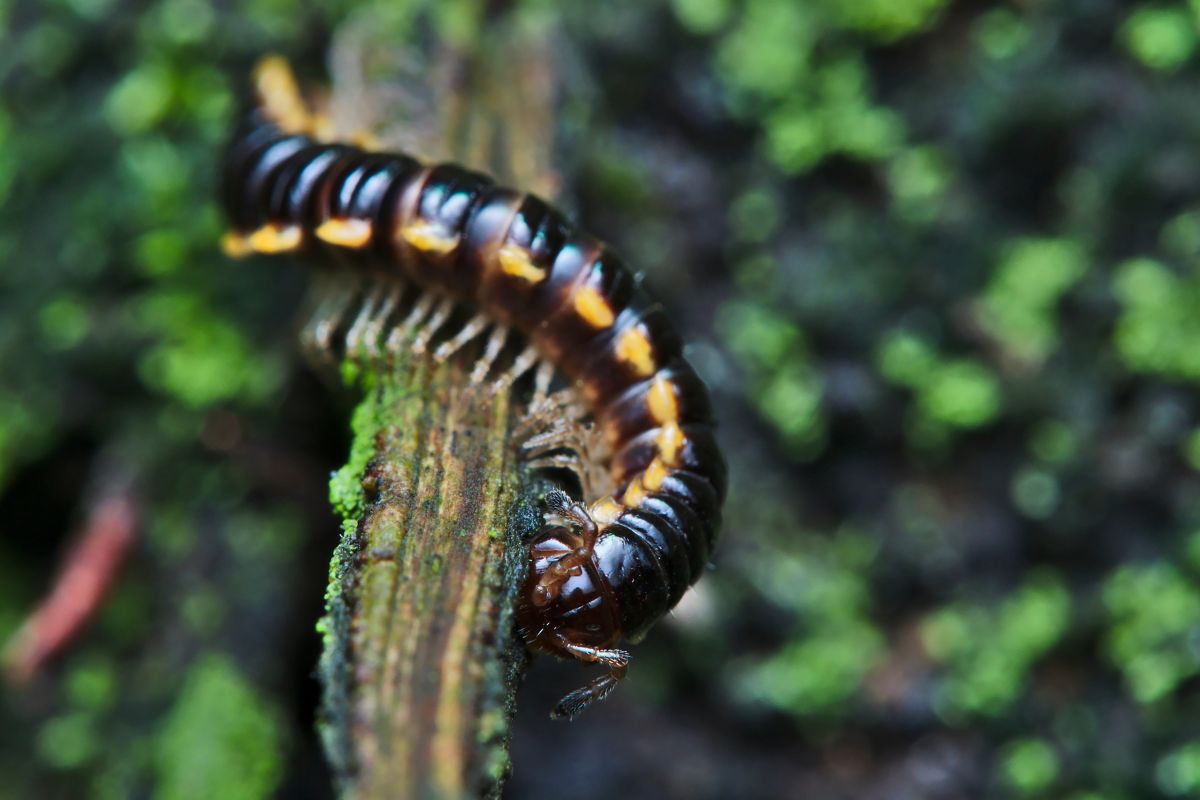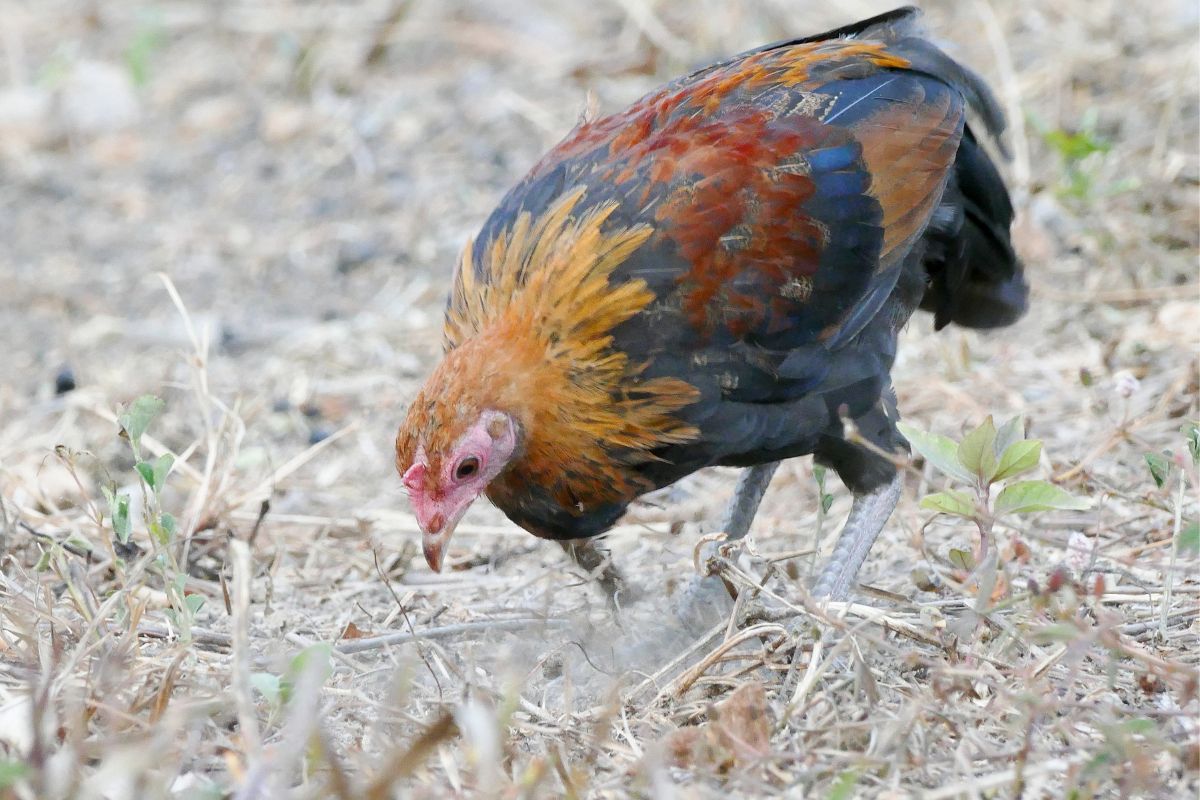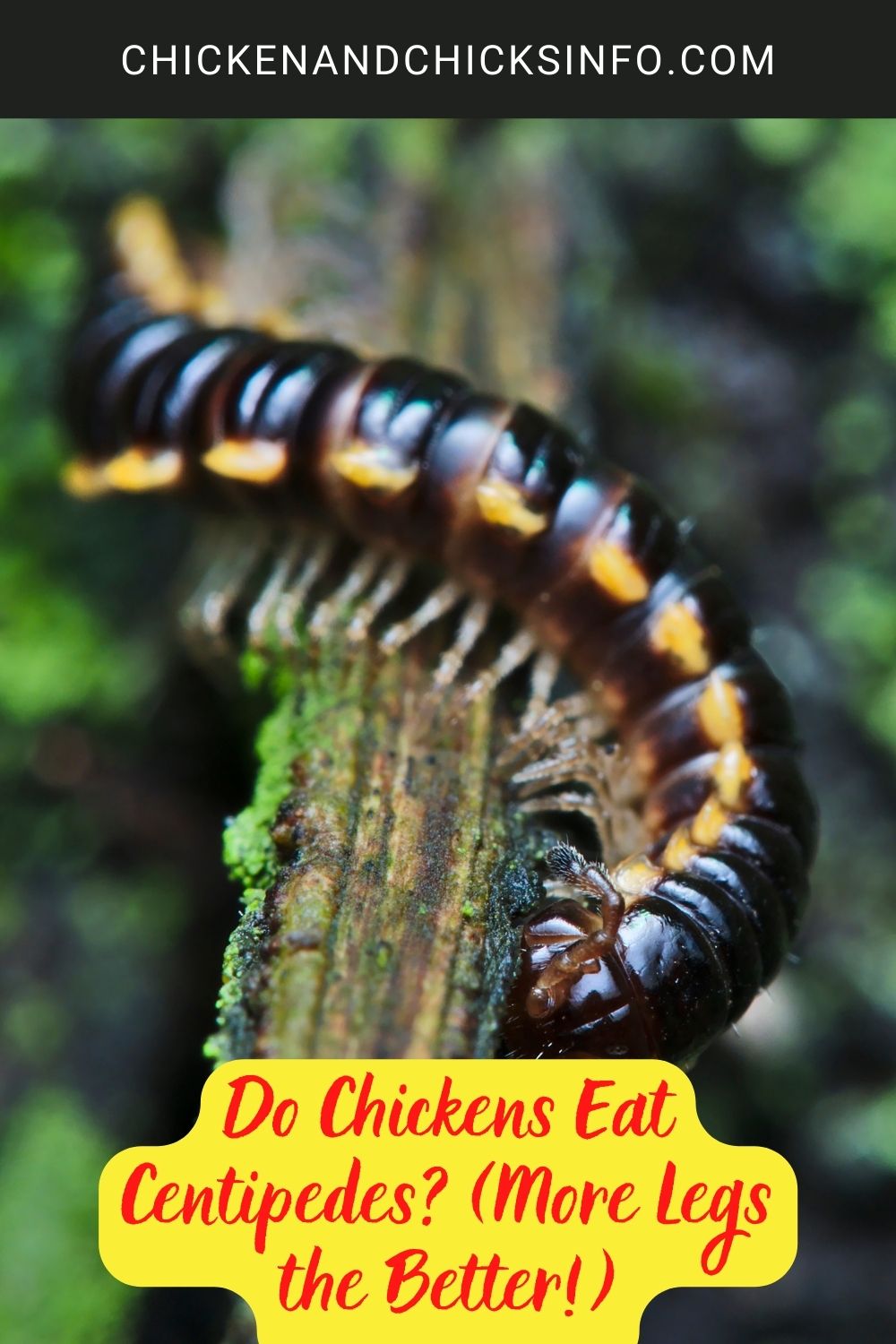
Chickens do eat centipedes, yes. They’re just one in a long line of insects, bugs, and backyard pests that chickens gobble up on sight. Some centipedes will put up a fight, but they don’t pose any real threat or danger to chickens.
Jump to:
Is It OK for Chickens To Eat Centipedes?
It's perfectly fine for chickens to eat centipedes. In fact, much like most bugs and insects, centipedes provide some decent nutritional content.
I will point out that I’m aware that centipedes are not technically insects. They are in fact arthropods. But they look, act, and are commonly referred to as insects.
Another interesting fact that you might not have known, centipedes do not all have 100 legs. They can have anywhere between 15 and 177 pairs of legs, and they come in a wide range of shapes, sizes, and colors.
Either way, it’s completely normal for chickens to eat insects. Wild or free-range chickens will eat just about as many little creatures as they can find will foraging around.
Insects provide a lot of the key nutrition chickens need. They’re high in protein, fats, and carbohydrates, and chickens clearly love chasing and gobbling them up.
Are Centipedes Poisonous or Dangerous?

The interesting thing about centipedes is that they are one of the more dangerous backyard critters for other small insects.
Centipedes are carnivores and they possess the ability to poison their prey so that they can eat it. They will even bite and try to poison us if we handle them.
Fortunately, they are far too small and their toxins are far too weak to do any serious damage to us or small animals like chickens.
The only exception is if they bite someone who has an allergic reaction do the chemicals they possess. Much like those who have allergic reactions to wasp and bee stings.
Still, a bite from a medium to large centipede does hurt apparently. Luckily I've not been bitten by one myself, neither have any of my chickens as far as I know.
Do Chickens Eat Millipedes?
Chickens do and can also eat millipedes, yes.
Millipedes are also interesting little creatures. Their name is Latin for “thousand feet”, but much like centipedes don’t all have 100 legs - millipedes don't strictly have 1000 legs.
In fact, while they do typically have more legs than centipedes, they rarely have more than 200 pairs of legs.
The main way you can tell the difference between a millipede and centipede is that they have more rounded bodies, a bit like a worm. They also have two pairs of legs per body segment, not one like centipedes.
Millipedes also have a different defensive mechanism. They don't bite and poison their prey. Instead, they spray a toxin that burns and debilitates other insects that they want to eat.
They will also spray this at us or chickens if they feel threatened. but it's too weak to do any harm unless we have an allergic reaction that is.
How Many Bugs Do Chickens Eat a Day?

It's generally believed that chickens will eat more bugs in a day then they would chicken feed. Chickens typically eat about 4-5 oz of feed per day, so it would take a lot of bugs to weigh more than that!
Generally speaking, unless you have some sort of infestation your chickens will gobble up everything they come across each day.
Some of the Other Backyard Bugs That Chickens Can Eat
Millipedes and centipedes are just two of the many different bugs, insects, and pests chickens gobble up.
Obviously, it depends on where you live and what kinds of wildlife you have. But honestly, if it lives, moves, and is small enough for a chicken to eat, they’re probably going to eat it.
Here is just a few of the most common backyard bugs chickens love to feast on:
- Ants
- Termites
- Worms
- Grubs
- Maggots
- Slugs and snails (read about the risks slugs present here.)
- Grasshoppers and crickets
- Beetles
- Stink bugs (eww I hate these)
- Small reptiles like lizards
… as I mentioned, there aren’t many bugs they’ll leave alone.
The best part is that it’s a win-win. You get free pest control roaming around your backyard, and your chickens get some extra nutrition in their diet.
In Summary
Centipedes, millipedes, and stink bugs too for that matter are a few of the pests we have around here that I like to avoid.
Personally, I don't like little critters that bite or spray smelly chemicals at me. But who does?
I’m happy to leave up to my chickens to take care of them. They all make for awesome snacks and give my hens something to cluck about and chase.





